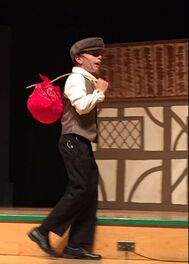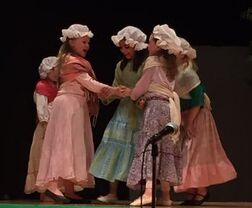
Our teacher, Katherine Cowley, also told us that we could easily get drawn into some Black Holes. One source can lead to another and on to another and another and then they can lead to an abrupt end. It is so easy to get all absorbed in time wasting endeavors and never get on to writing. Or, it is just as easy to follow leads that go off on tangents that really have no bearing on your original topic.
Just yesterday, I found myself down a rabbit hole. I was looking in my own Family Tree for any connections to Welsh ancestry. I kept checking family lines and found myself going back for generations further than I have ever seen connections go before. It is obvious that a lot of work has been done in the past few months. I was fascinated how one line of generations had been linked from England to northern Europe, to the steppes of Asia, and down into the Holy Land at about the time of Christ. Amazing!
I cannot take any credit for that work. I can only thank the people who have been doing this genealogy! But true confession, the hours I spent tracing those family lines had nothing to do with finding a Welsh connection in the 1800s. So though it was interesting information, I wasted a lot of time.
Our teacher told us that it is best to set limits to how you do your historical research. That will help you know how to use it. All along the way you judge your findings by how it will fit the GENRE, serve the PLOT, develop the CHARACTERS, flavor the STYLE, or express the POINT OF VIEW. She also encouraged us to get the most out of our research by making it do double duty. Let it reveal the characters and their relationships, as well as impact the plot and setting. And we shouldn't worry about using too many details. We can gloss over irrelevant facts.

I get excited when doing the research for a new project. One of my favorites was doing the research for "The Adventures of Dick Whittington." I learned about life in London during the Renaissance. I learned about clothing and architectural styles and even about Nursery Rhymes and Sea Chanties that were popular at the time. Experimenting on doing Old English Pantomime circa 1600 AD was probably the most fun of all. I was surprised that even the audience Sing-Along worked for that show! Good Historical Research is the best secret ingredient to making the recipe a success!
 RSS Feed
RSS Feed